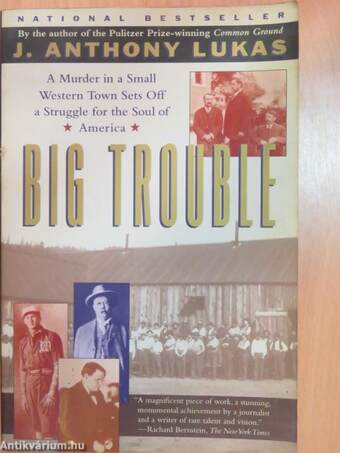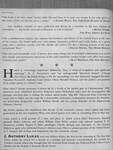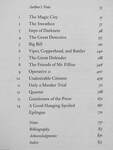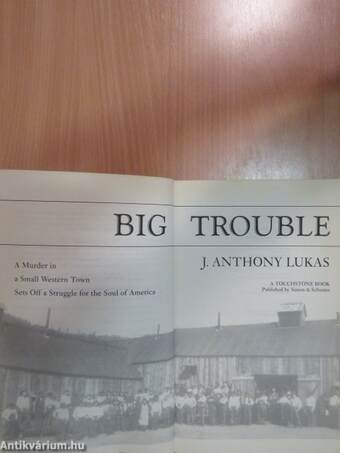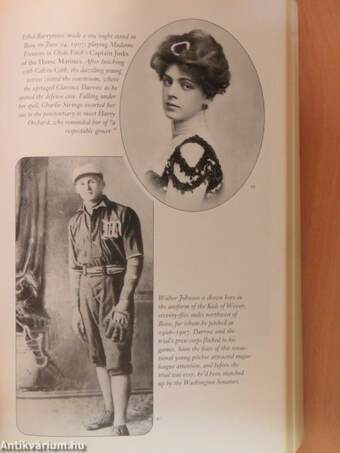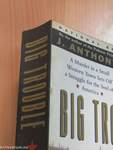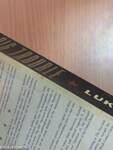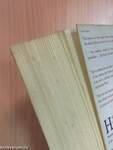1.116.679
kiadvánnyal nyújtjuk Magyarország legnagyobb antikvár könyv-kínálatát
Big Trouble
A Murder in a Small Western Town Sets Off a Struggle for the Soul of America
| Kiadó: | Simon & Schuster |
|---|---|
| Kiadás helye: | New York |
| Kiadás éve: | |
| Kötés típusa: | Ragasztott papírkötés |
| Oldalszám: | 875 oldal |
| Sorozatcím: | Touchstone Book |
| Kötetszám: | |
| Nyelv: | Angol |
| Méret: | 23 cm x 16 cm |
| ISBN: | 0-684-84617-9 |
| Megjegyzés: | Fekete-fehér fotókkal. |
naponta értesítjük a beérkező friss
kiadványokról
naponta értesítjük a beérkező friss
kiadványokról
Fülszöveg
history "This book is to 'true crime' stories what War and Peace is to most war novels. It not only gives us the crime of the era, but the era as a crime." -garry wills, The New York Review of Books ". . . Vast, detailed, colorful, at once analytical and driven by a storyline in the best manner of journalism. . . . Big Trouble succeeds as literature as well as history." -kevin starr, The Wall Street Journal "Like a rambunctious Ragtime that captures the brashness and bluster of the United States at the turn of the century, Big Trouble spills over with outsize characters, political and social clashes on a grand scale, and a celebrity murder trial that divides the nation. It's also a bracing portrait of the real, unromantic West." -frank davies, The Miami Herald "This vast and remarkable work of history does many things, but its principal achievement is to reveal how deeply and passionately Americans of the early twentieth century fought each other over issues of power and wealth."... TovábbFülszöveg
history "This book is to 'true crime' stories what War and Peace is to most war novels. It not only gives us the crime of the era, but the era as a crime." -garry wills, The New York Review of Books ". . . Vast, detailed, colorful, at once analytical and driven by a storyline in the best manner of journalism. . . . Big Trouble succeeds as literature as well as history." -kevin starr, The Wall Street Journal "Like a rambunctious Ragtime that captures the brashness and bluster of the United States at the turn of the century, Big Trouble spills over with outsize characters, political and social clashes on a grand scale, and a celebrity murder trial that divides the nation. It's also a bracing portrait of the real, unromantic West." -frank davies, The Miami Herald "This vast and remarkable work of history does many things, but its principal achievement is to reveal how deeply and passionately Americans of the early twentieth century fought each other over issues of power and wealth." -alan brinkley, The New Repubuc ? * * Hailed as "toweringly important" (Baltimore Sun), "a work of scrupulous and significant reportage" (E. L. Doctorow), and "an unforgettable historical drama" (Chicago Sun-Times), Big Trouble brings to life the astonishing case that ultimately engaged President Theodore Roosevelt, Supreme Court Justice Oliver Wendell Holmes, and the politics and passions of an entire nation at century's turn. After Idaho's former governor is blown up by a bomb at his garden gate at Christmastime 1905, America's most celebrated detective, Pinkerton James McParland, takes over the investigation. His daringly executed plan to kidnap the radical union leader "Big Bill" Haywood from Colorado to stand trial in Idaho sets the stage for a memorable courtroom confrontation between the flamboyant prosecutor, progressive senator William Borah, and the young defender of the dispossessed, Clarence Darrow. Big Trouble captures the tumultuous first decade of the twentieth century, when capital and labor, particularly in the raw, acquisitive West, were pitted against each other in something close to class war. Lukas paints a vivid portrait of a time and place in which actress Ethel Barrymore, baseball phenom Walter Johnson, and editor William Allen White jostled with railroad magnate E. H. Harriman, socialist Eugene V. Debs, gunslinger Charlie Siringo, and Operative 21, the intrepid Pinkerton agent who infiltrated Darrow's defense team. This is a grand narrative of the United States as it charged, full of hope and trepidation, into the twentieth century. J. Anthony Lukas won two Pulitzer Prizes: the first for his reporting at The New York Times, where he served for a decade as a foreign and domestic correspondent; the second tor Common Ground, which also brought him the National Book Award, the National Book Critics Circle Award, and the Robert E Kennedy Book Award. VisszaTémakörök
- Idegennyelv > Idegennyelvű könyvek > Angol > Szépirodalom > Megtörtént bűnügyek, dokumentumregények
- Idegennyelv > Idegennyelvű könyvek > Angol > Jogtudomány > Kriminalisztika
- Idegennyelv > Idegennyelvű könyvek > Angol > Történelem > USA története
- Jogtudomány > Kriminalisztika > Bűnesetek, bűnözés
- Történelem > Idegennyelvű > Angol
- Történelem > Politika > Belpolitika > Egyéb
- Történelem > Legújabb kor > Egyéb
- Történelem > Kontinensek szerint > Amerika, amerikai országok története > Észak-Amerika
- Szépirodalom > Megtörtént bűnügyek, dokumentumregények


